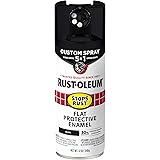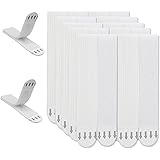Preparing for a fishing camping trip combines the thrill of angling with the adventure of outdoor living, offering a unique escape into nature. Success in such a venture requires thorough preparation, from selecting the right gear to understanding the environment you’ll be entering.
Gear and Equipment: Start with the basics—a high-quality fishing rod and reel suited to the type of fishing you plan to do, whether it’s freshwater or saltwater, fly fishing, or spinning. Your tackle box should include various lures, hooks, line, sinkers, and bait specific to the fish species in your destination. Don’t forget a durable, waterproof bag to keep your fishing gear organized and dry.
For camping, essential items include a tent, sleeping bag, cooking equipment, and a portable stove or grill. Lightweight and compact gear are preferable for ease of transport and setup. Include a reliable source of light, such as a flashlight or headlamp, and a first aid kit for emergencies.
Clothing and Personal Items: Weather can change quickly outdoors, so pack clothing that can be layered. Waterproof and windproof outer layers will protect against the elements, while moisture-wicking fabrics keep you comfortable during active fishing sessions. Sun protection is critical—bring sunglasses, a wide-brimmed hat, and sunscreen to shield yourself from UV rays.
Navigation and Communication: A detailed map of the area and a compass or GPS device are indispensable for navigating unfamiliar terrain. In areas with limited cell service, consider a satellite phone or a personal locator beacon for emergency communication.
Food and Water: Plan your meals in advance, focusing on non-perishable, easy-to-prepare food. High-energy snacks like nuts, jerky, and granola bars are great for quick refueling. Ensure you have a sufficient water supply, as well as a way to purify water found in nature, such as water filtration systems or purification tablets.
Licenses and Regulations: Before you head out, make sure you have the necessary fishing licenses and are familiar with the local fishing regulations, including size limits, catch limits, and specific rules about bait and tackle. This not only ensures a legal fishing experience but also contributes to the conservation of fish populations and habitats.
Environmental Awareness: Understanding the ecosystem you’ll be entering is crucial. Research the best fishing spots, as well as the behavior and habitat of the target fish species. Respect wildlife and practice “Leave No Trace” principles to minimize your impact on the natural environment.
Safety: Safety should be your top priority. Inform someone about your trip itinerary and expected return time. Be aware of the risks associated with wilderness camping and fishing, such as wildlife encounters, and prepare accordingly.
By meticulously planning and equipping yourself with the necessary gear, knowledge, and respect for nature, your fishing camping trip can be a rewarding adventure. It’s an opportunity to disconnect from the hustle of daily life, immerse yourself in the tranquility of the outdoors, and maybe even land the catch of a lifetime.








